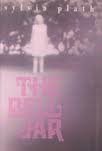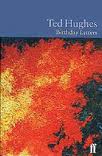
In this month’s book club session at The Mill, we discussed Sylvia Plath’s The Bell Jar, alongside Ted Hughes’ The Birthday Letters.
With The Bell Jar, It was a trip down memory lane for many of our members, who read the text when they were growing up. For others, it was a book they had heard about, but were experiencing for the first time. The novel, which charts the breakdown of an American girl, is Plath’s only novel and her most famous work – quite possibly because of its semi-autobiographical nature. Most who knew about Plath said it was impossible to read the text and not to compare it with her life and indeed her own decent into mental health.
Though the novel is at times dark and painful to read, many noted that there were two sides to the book; the side which simply tells the tale of a young woman growing up and the side which charts her attempts at suicide. Knowing of course that Sylvia Plath committed suicide just a month after the UK publication of the tale makes this all the more chilling. However, because of these early stages of the tale many of us felt that the novel could be read again and again for its ability to capture youth and the decisions that one must make when becoming an adult. The women in particular felt they could really relate to aspects of Ester Greenwood’s character and her experiences, which is essentially what makes the novel so captivating when she does descend.
We then moved onto her husband, Ted Hughes’ Birthday Letters, discussing which poems stood out for us the most. The collection of poems

Knowing the reputation that Ted Hughes had with infidelity and the tempestuous relationship they had, many feminist groups vilified the writer, even blaming him for Sylvia’s death and chipping his name of Plath’s gravestone. It was hard, therefore not to read The Birthday Letters as an attempt by Hughes to redress the balance and describe the pain of living with, and without, Sylvia Plath. Reading this collection together with Plath’s account of her own decline offered a balanced and insightful view of the literary couple and a thoroughly enjoyable discussion.
Below are the dates and texts for the next three book club meetings. We hope that you can make it.
Tuesday 18th September at 7.00pm: Flowers For Algernon by Daniel Keyes
Tuesday 16th October at 7.00pm: Kim by Rudyard Kipling
Tuesday 20th November at 7.00pm: The Quickening Maze by Adam Foulds

 Follow
Follow